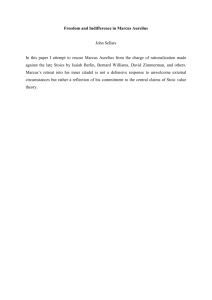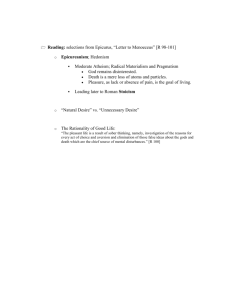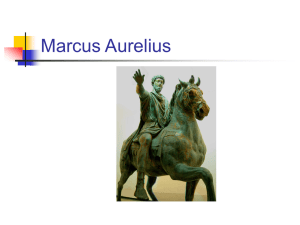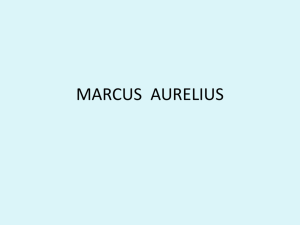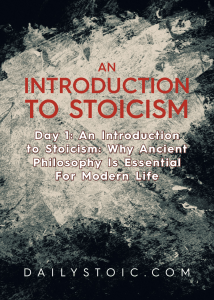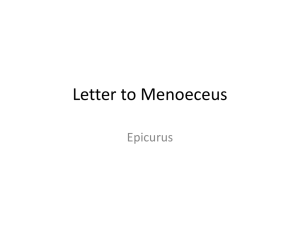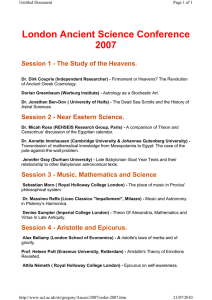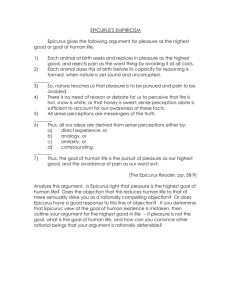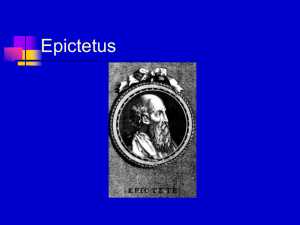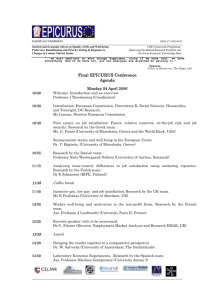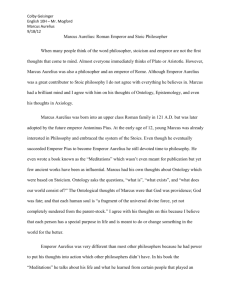ANCIENT WESTERN PHILOSOPHY
advertisement
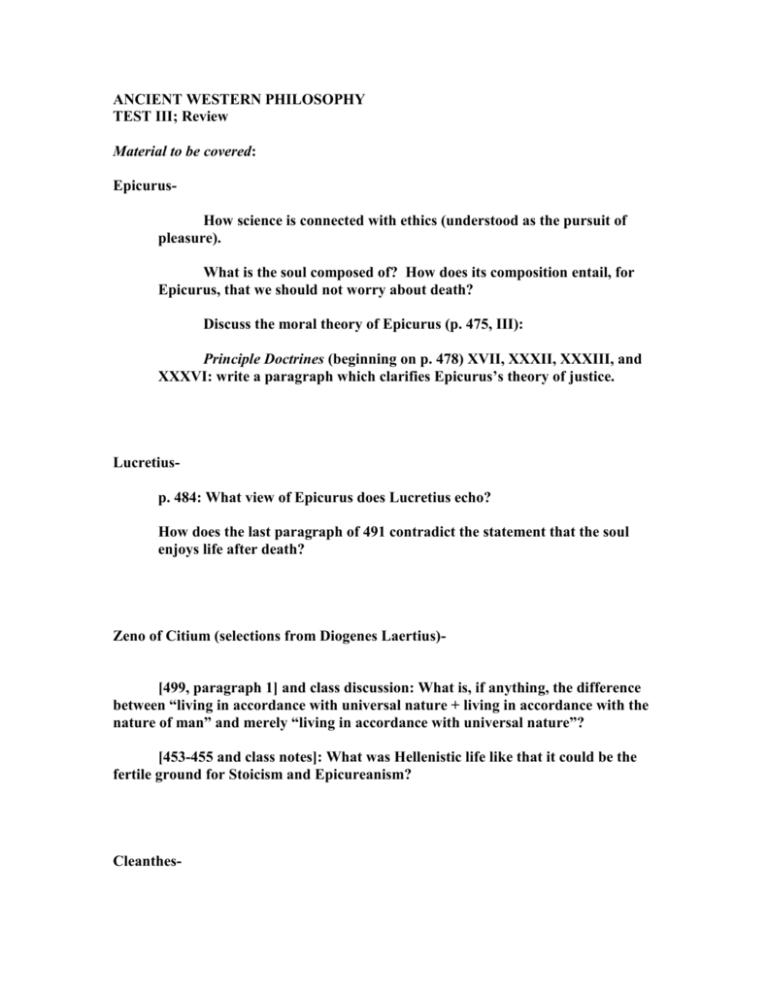
ANCIENT WESTERN PHILOSOPHY TEST III; Review Material to be covered: EpicurusHow science is connected with ethics (understood as the pursuit of pleasure). What is the soul composed of? How does its composition entail, for Epicurus, that we should not worry about death? Discuss the moral theory of Epicurus (p. 475, III): Principle Doctrines (beginning on p. 478) XVII, XXXII, XXXIII, and XXXVI: write a paragraph which clarifies Epicurus’s theory of justice. Lucretiusp. 484: What view of Epicurus does Lucretius echo? How does the last paragraph of 491 contradict the statement that the soul enjoys life after death? Zeno of Citium (selections from Diogenes Laertius)- [499, paragraph 1] and class discussion: What is, if anything, the difference between “living in accordance with universal nature + living in accordance with the nature of man” and merely “living in accordance with universal nature”? [453-455 and class notes]: What was Hellenistic life like that it could be the fertile ground for Stoicism and Epicureanism? Cleanthes- On the second day of class, we identified the “problem of polytheism”, which is that if there are many gods, how do we know which one to listen to?... We saw this problem addressed in Plato’s Euthyphro as well. For the Greek mind, which was beginning to attribute order to the world, this potential disorder of divine disagreement was unacceptable. So, Zeus becomes King of the Gods. Now the question: How does the Hellenistic Cleanthes refer to the solution of the “problem of polytheism” and connect the solution to his Stoicism? EpictetusWhat was Epictetus’s occupation? Summarize his philosophy and use 511 #3, 515 #26, and 516 #29 in your summary. Compare Epictetus p. 517 # 31 to Cleanthes pp. 507-508. Marcus AureliusWhat was Marcus Aurelius’s occupation? What does Aurelius’ p. 529 #35 “All is ephemeral, the one remembering and the one remembered” mean? How could p. 530 #49 be used to justify “putting away” a killer who, sadly, was abused as a child? Additional Questions. 1. How did Epictetus and Marcus Aurelius, Roman slave and emperor respectively, draw upon the philosophy of Zeno of Citium? Putting these Stoics together, we get a relatively cohesive picture of 1) control over life’s happenings, 2) human happiness, 3) harmony with the universe, and 4) death. Choose at least three of these and summarize the Stoic views on them, noting who articulates each view. 2. The Presentations: Choose three presentations other than your own and answer these questions: 1) What was the author’s thesis? 2) How did he or she defend it? 3) What concerns were raised regarding the argument? 4) What is your position on the matter?
